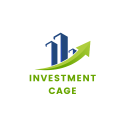
Investing in fixer-upper properties can be a lucrative venture, offering the potential for significant returns through strategic renovations. However, not all distressed properties are created equal, and choosing the right one is crucial for success. Finding the perfect fixer-upper could be the difference between defaulting on your loan or boosting your portfolio.
Whether you’re a newbie debating on flipping houses or an expert looking to review your strategy, this article can help. Stick around as we reveal what qualities investors should look for when searching for a profitable fixer-upper investment. From location and structural integrity to budget considerations and growth potential, we’ll explore the essential factors to consider. So, let’s dive in.
Finding Fixer Uppers – What Qualities Should Investors Look For
-
Location
We cannot overstate the importance of investing in a prime neighborhood. A property’s location is paramount. Look for fixer-uppers in communities with strong demand, good schools, low crime rates, and proximity to amenities. While these houses tend to be more expensive, their ROI often matches because more buyers are ready to purchase when the house goes on sale. Banks and private lenders are also more likely to expedite your request and give you backing after seeing the potential of your investment.
-
Condition
The next thing every investor should consider is the condition of the fixer-upper. You need to ensure that the property’s core structure is sound, as that will reduce the work you must do to make it habitable. Buying a house that requires a complete remodel can be more cost and time-intensive. Cosmetic issues are easier to address than major structural problems and have a better ROI.
-
Price
Avoid breaking the bank to remodel a fixer-upper. It would be best to have a realistic idea of how much a remodel costs before going ahead with your plans. That’s why involving a professional inspector who can evaluate the scope of needed repairs and renovations is essential. Maryland Hard Money Lenders can guide you on how to achieve a decent ROI from renovations that fall within your budget and skillset.
-
Growth Potential
Research the neighborhood’s potential for growth and appreciation. Investing in well-established communities can be a sure bet, but they can also be expensive due to stiff competition. On the other hand, up-and-coming areas often offer excellent investment prospects. They’re relatively cheaper to invest in, and their value can significantly appreciate after a short period.
-
Market Conditions
Consider the current real estate market conditions. Favorable buying conditions, such as a buyer’s market, can give you leverage in negotiation. Lower competition allows you to get the best rates and spend more money on renovations. In comparison, selling during a seller’s market maximizes your profits. Some fixer-uppers plan their buying and selling around the seasons to get the best value for their money.
-
Inspection and Due Diligence
If you want to make the right decision when buying a fixer-upper, you’ll need to rely on the help of experts. Inspectors, structural engineers, pest control, electricians, and plumbers are some professionals you should consider calling in to perform an assessment. These professionals can help you conduct a thorough inspection and due diligence to uncover hidden issues and estimate repair costs accurately.
-
Comparable Sales
Analyze recent sales of similar renovated properties in the area to gauge potential resale value. Knowing how much houses in the area are worth can give you a more accurate idea of your likely profit margin after you evaluate the cost of purchase, materials, labor, and paying off your loan.
-
Exit Strategy
Determine your exit strategy. Are you planning to flip the property for a quick profit, rent it out for ongoing income, or use it as a personal residence? Creating a strategy that considers your short or long-term goals can help you make informed decisions through prudent decisions. Besides, a detailed exit strategy can also improve your leverage when negotiating for a loan.
Pros and Cons of Using Hard Money Loan to Fund Fixer-Upper
Pros
-
Quick Approval
Hard money lenders typically offer faster approval processes than traditional lenders, enabling investors to seize opportunities promptly. Thus, they’re ideal for house flippers looking to quickly purchase fixer-uppers, rehab them, and sell them for profit.
-
Flexible Credit Requirements
While conventional bank loans are less likely to approve requests by people with low credit scores, hard money lenders focus more on the property’s value than the borrower’s credit score. In other words, they are more accessible for investors with imperfect credit histories.
-
Short-Term Financing
These loans are usually short-term, providing flexibility for investors who plan to renovate and sell quickly. Hard money loan durations typically last within 3 – 24 months, allowing investors with a short turnover to pay off their loans and move to the next project.
-
Customizable Terms
One of the best benefits of hard money loans is that nothing is set in stone. Parties can negotiate terms with their lender, allowing for tailored repayment schedules and interest rates. This flexibility enables investors to collaborate and agree on loan terms that fit their specific needs.
-
Investment Leverage
Hard money loans can enhance an investor’s purchasing power, enabling them to acquire more expensive or multiple properties simultaneously. Unlike traditional mortgages that finance only a percent of the investment’s worth, hard money lenders can approve your potential property’s ARV (after-repair value). By authorizing a more considerable amount, investors can easily finance the purchase and rehabilitation of their fixer-upper.
Cons
-
Higher Interest Rates
Hard money loans often come with higher interest rates compared to traditional mortgages. This feature makes it harder for investors flipping houses on a budget by potentially reducing their profit margin.
-
Upfront Costs
Besides their higher interest rates, hard money loans typically involve higher upfront and closing costs. These fees further push the overall cost of borrowing upwards, potentially inflating your budget.
-
Short Repayment Period
Another drawback of investing in a hard money loan is the short repayment period. The short-term nature of these loans may necessitate faster, riskier exit strategies, putting pressure on investors to complete renovations and sell or refinance quickly.
-
Asset Risk
Shorter repayment periods also increase the risk of investors losing their assets. If the renovation project encounters unforeseen challenges or market conditions change, investors risk losing the property they used as collateral. Thus, it is a more high-risk loan than a traditional mortgage.
-
Limited Regulations
Hard money lending is less regulated than traditional lending, which can expose borrowers to potential predatory lending practices. Investors without the proper knowledge can fall victim to scammers pretending to be legitimate lenders. Thus, you could lose valuable time and money if you’re not careful.
Conclusion
In conclusion, when it comes to finding fixer-uppers, there are vital qualities investors should look for before going ahead. You should factor in metrics like location, condition, and price to get a good grasp of a property’s potential profitability. When you find one that matches all the proper criteria, consider opting for a hard money loan to finance your investments.
Hard money loans offer speed and flexibility in approval, making them a valuable resource for investors seeking quick turnaround on renovation projects. However, the higher interest rates, short repayment periods, and potential risks associated with asset valuation require careful consideration. Investors must weigh these pros and cons against their financial goals, risk tolerance, and project timelines. By conducting thorough due diligence and seeking expert advice when necessary, investors can leverage hard money loans effectively to build a successful fixer-upper business.
